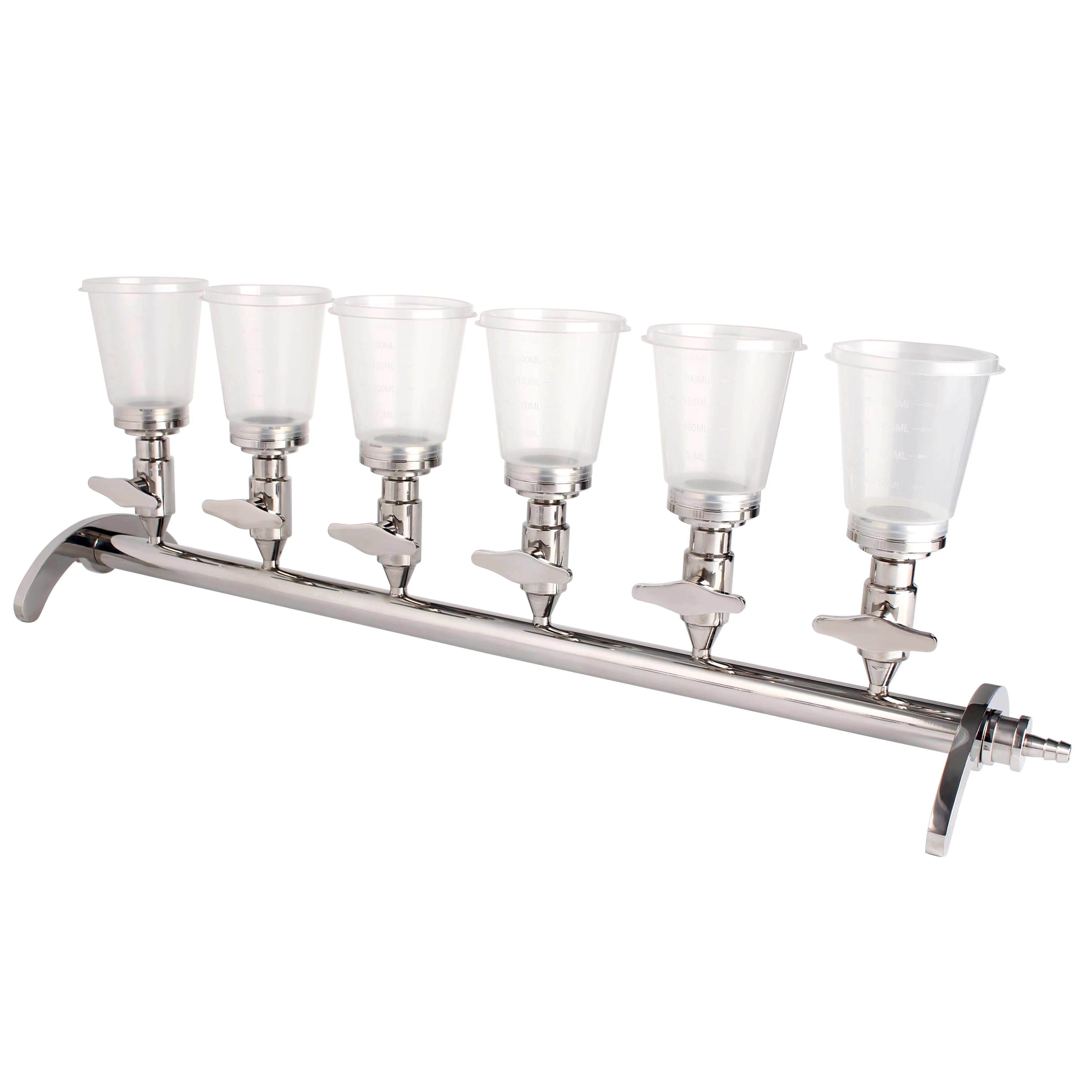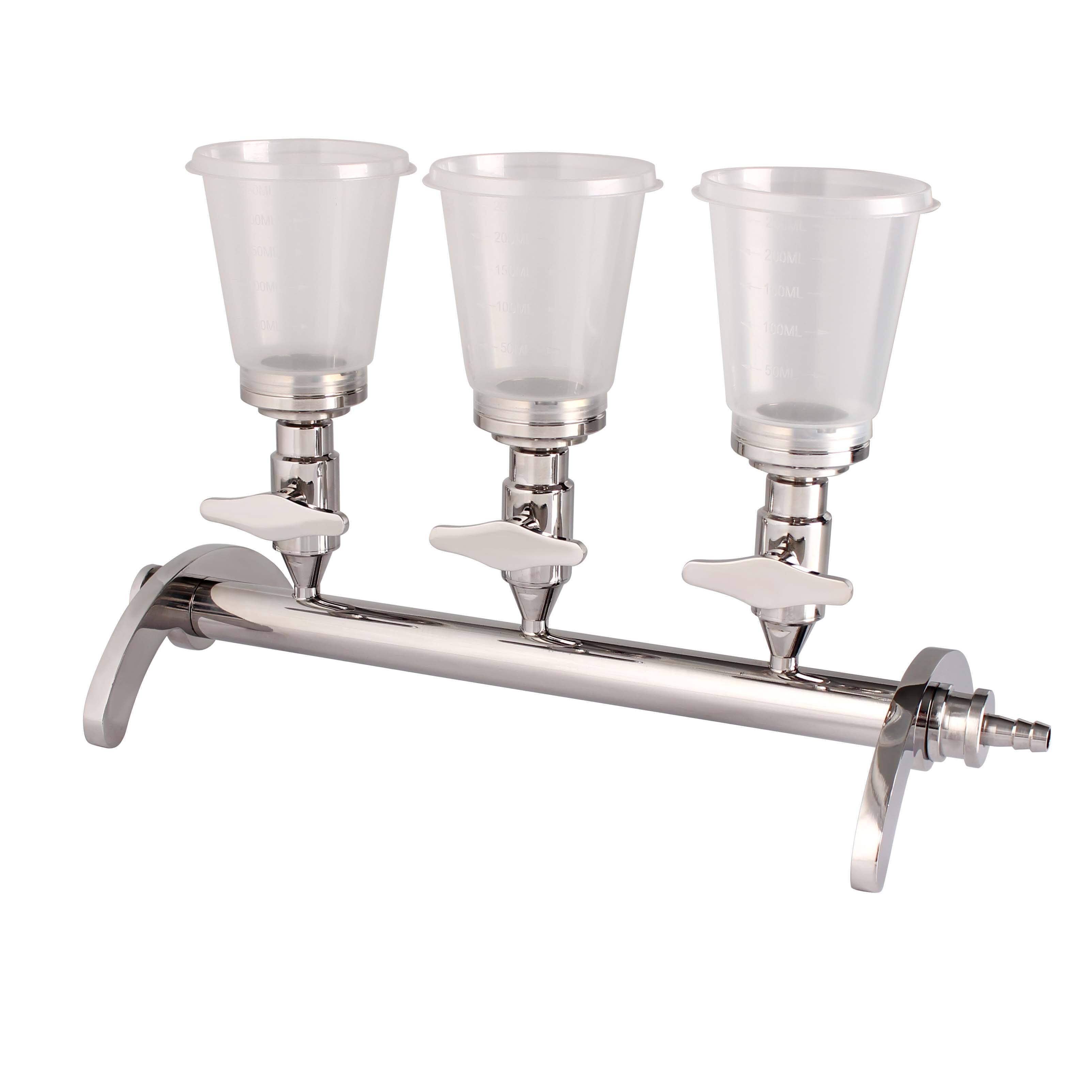실험실 진공 여과 시스템
실험실 진공 여과 시스템은 진공 압력을 적용하여 고체와 액체를 효율적으로 분리하기 위해 설계된 필수 장비입니다. 이 정교한 시스템은 진공 소스, 여과 플라스크, 여과 펑션, 그리고 여과 매체 등 여러 주요 구성 요소로 이루어져 있습니다. 이 기술은 압력 차이를 만들어내어 여과 과정을 가속화하며, 중력 여과 방법보다 훨씬 더 빠릅니다. 시스템의 설계는 다양한 샘플 유형에 대해 최적의 여과 조건을 보장하기 위해 진공 압력을 정밀하게 제어할 수 있도록 합니다. 현대적인 실험실 진공 여과 시스템은 화학적 내성 재료, 디지털 압력 제어 인터페이스, 그리고 모듈식 구성 요소를 포함하여 강화된 다용도성을 제공합니다. 이러한 시스템은 제약 연구, 화학 분석, 환경 테스트, 식품 안전 실험실 등 많은 과학 분야에서 널리 사용됩니다. 이 기술은 연구원들이 샘플 무결성을 유지하면서 동시에 여러 샘플을 처리할 수 있도록 해주며, 높은 처리량을 유지합니다. 또한 이러한 시스템은 종종 진공 해제 밸브 및 오버플로 보호 메커니즘과 같은 안전 기능을 포함하여 실험실 직원들에게 효율적이면서도 안전합니다. 진공 여과 시스템의 적응성은 소규모 분석 절차에서 더 큰 규모의 준비 작업까지 다양한 샘플 양을 처리할 수 있게 하여 현대 실험실 환경에서 없어서는 안될 존재가 됩니다.


